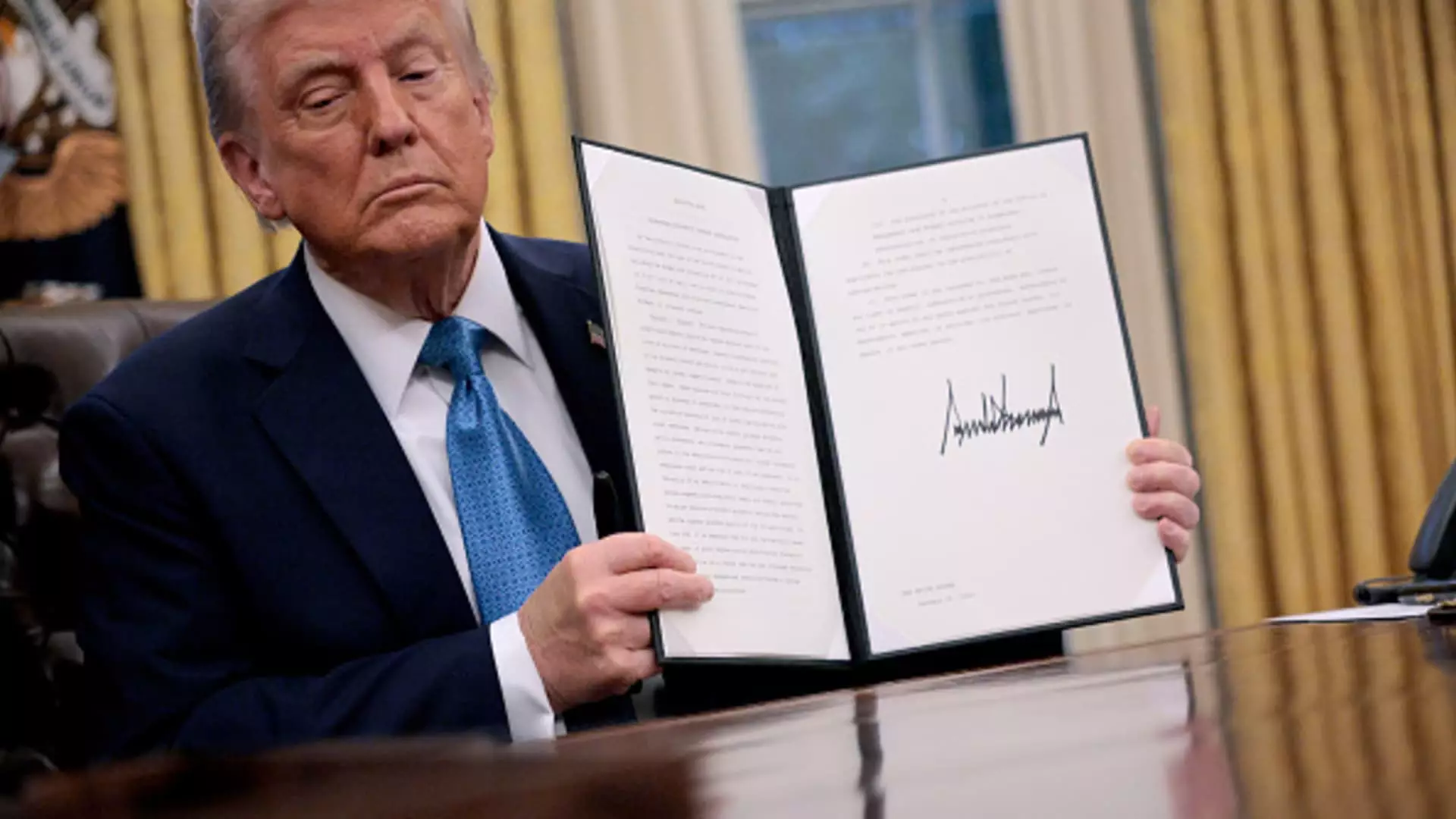In a surprising turn of events, the stability of the U.S. stock market faced a significant disturbance on Monday due to President Donald Trump’s recent tariff decisions, signaling the potential onset of a global trade war. The implications for various sectors are considerable, raising concerns for businesses with international supply chains that could find themselves navigating a challenging landscape.
The backdrop to this economic upheaval involves Trump imposing a staggering 25% tariff on imports from Mexico and Canada, alongside a 10% tariff on Chinese products. While Trump’s administration posited these tariffs as necessary measures to protect American jobs and industries, the immediate aftermath suggests a more complex reality. Although his announcement indicated a temporary pause on tariffs against Mexico following an agreement with its government regarding border security, the specter of escalating tensions with China and the European Union remains unaddressed.
Trump’s tactics do not merely imply adjustments in price; they threaten to complicate logistics and interfere with the finely tuned machinery of global supply chains. Companies dependent on cross-border trade face potential disruptions that could lead to higher operational costs and, consequently, lower profit margins.
The automotive sector, in particular, stands to experience severe repercussions. Major players like General Motors, Ford, and Stellantis could be adversely affected as they attempt to reconfigure their manufacturing processes to adapt to these tariffs. The reliance on international components means that they may be compelled to reevaluate their production strategies, shifting operations from overseas factories back to the U.S. Such movement, while potentially beneficial for domestic job creation, raises questions about efficiency and the ultimate cost to consumers.
Simultaneously, the beverage sector is already showing signs of strain, especially for companies like Constellation Brands, heavily reliant on imports from Mexico for wine and beer production. The reaction from Canada, threatening to retaliate by removing U.S.-produced alcohol from government-operated liquor stores, only amplifies the uncertainty that these trade policies introduce.
Other industries facing the brunt of these tariffs include those relying on staple imports, such as the food and beverage enterprises that source essential ingredients like avocados from Mexico. Chipotle Mexican Grill and Calavo Growers may have to contend with inflated prices for these essentials, affecting their pricing strategies and consumer accessibility.
Beyond agriculture and automotive, the retail and consumer goods sectors are also expected to bear the brunt of Trump’s toughened trade stance. Brands such as Nike and Lululemon, which heavily depend on Chinese manufacturing, find themselves at a perilous intersection. The tariffs jeopardize not only their supply chains but also the relationships they’ve cultivated in burgeoning markets like China, where consumer sentiment could shift sharply.
Discount retailers, such as Dollar General, may face challenges as their revenue sources dwindle due to rising import costs of everyday consumer goods. Added to that is the potential for a slowdown in the flow of goods through various transport networks, which could add a layer of complexity for logistics and distribution services. Rail companies, including Union Pacific, Norfolk Southern, and Canadian Pacific Kansas City, may find their operations adversely affected by tariffs slowing down the goods that cross their tracks.
Another noteworthy element involves the “de minimis” threshold, previously allowing for duty-free imports of packages valued under $800. The recent changes not only jeopardize warehouse and supply operations but threaten the burgeoning online retail space, making it increasingly difficult for platforms like Temu and Alibaba’s AliExpress to operate effectively in a marketplace previously favorable for budget-conscious consumers.
As stakeholders navigate these shifting tides, the outlook remains tenuous. Market analysts, including firms like Goldman Sachs, caution about the potential fallout reverberating across various sectors of the economy. While the long-term impacts of these tariffs remain to be seen, their introduction marks a significant pivot in America’s trade trajectory—one that could redefine not just relationships with trading partners, but also the domestic landscape of industries reliant on international inputs.
The path forward will require a delicate balance of economic policy and diplomatic negotiations to avert an all-out trade conflict. The global marketplace is watching closely, anticipating not only the immediate effects but also the lasting changes these tariffs could herald in the interconnected world of trade.

Leave a Reply